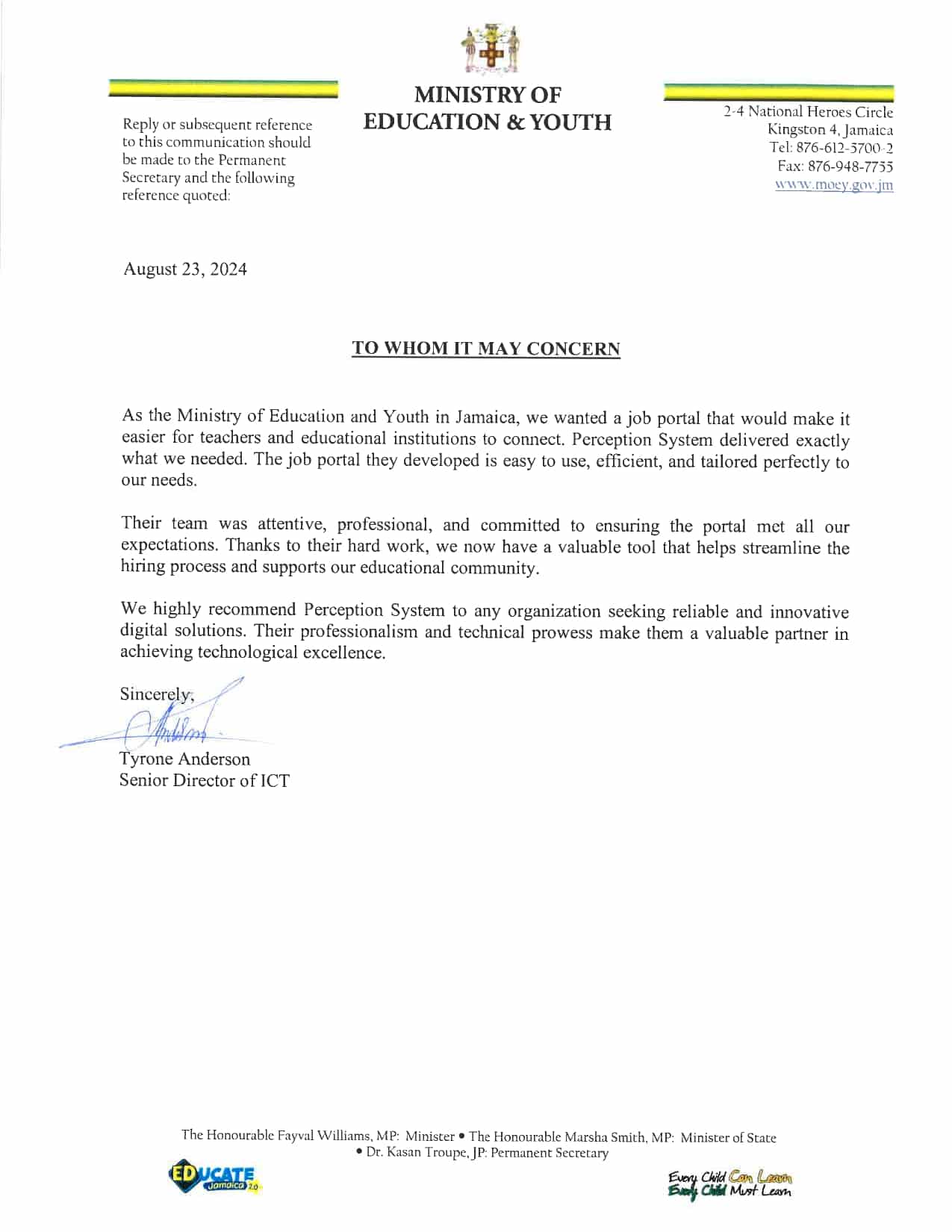Table of contents:
Why Hiring a Moodle Developer is Crucial for Your eLearning Needs
Understanding Moodle’s Versatility
Customization
Scalability
User Engagement Features
Cost-Efficiency
Long-Term Support
Define Your Goals
Set a Realistic Budget
Step 1: Create a Detailed Job Description
Step 2: Review Portfolios and References
Step 3: Conduct Technical Interviews
Step 4: Assign a Test Task
Step 5: Finalize the Contract
Establish Milestones and Deadlines
Effective Communication and Feedback
Quality Assurance and Testing
How Much Does Moodle Development Cost?
How Long Does It Take to Develop a Moodle Platform?
Why Choose Perception System for Moodle Development?
In today’s digital-first world, eLearning is no longer just an option—it has become a vital tool for education, corporate training, and professional development. Among the many platforms available, Moodle stands out as one of the most reliable, versatile, and scalable Learning Management Systems (LMS). Its robust architecture has made it a popular choice for schools, universities, corporations, and nonprofit organizations worldwide.
However, while Moodle offers immense possibilities, unlocking its true potential often requires the expertise of a skilled Moodle developer. From custom features to seamless integrations and performance optimizations, a proficient developer ensures that Moodle aligns with your specific business requirements.
This guide provides a detailed, step-by-step approach to Hiring a Moodle Developer for your needs. If you prefer an expert team to handle everything, Perception System is your trusted partner, offering comprehensive Custom Moodle Development Services to turn your vision into reality.
Why Hiring a Moodle Developer is Crucial for Your eLearning Needs

Understanding Moodle’s Versatility
Moodle, short for Modular Object-Oriented Dynamic Learning Environment, is an open-source platform designed to facilitate online learning and training. It provides unparalleled flexibility, enabling businesses and educators to create engaging and effective eLearning experiences.
But while Moodle is inherently powerful, many organizations face challenges when customizing it to suit their unique needs.
- Create custom themes and designs that align with your branding.
- Develop advanced features such as gamification, detailed analytics, and AI-powered recommendations.
- Integrate third-party tools, such as payment gateways, video conferencing platforms, and CRM systems.
- Optimize the platform to accommodate thousands of concurrent users without compromising performance.
The Benefits of Professional Moodle Development
Hiring a professional Moodle developer comes with several distinct advantages:
Customization
A skilled developer can tailor Moodle to reflect your brand identity and achieve your specific objectives. This includes custom course layouts, navigation enhancements, and innovative tools that make the user experience seamless.
Scalability
Whether you’re planning to serve hundreds or tens of thousands of users, an experienced developer ensures that your platform remains stable and scalable as you grow.
User Engagement Features
Gamification, interactive elements, and advanced reporting tools are just a few examples of how a developer can enhance the user experience and boost learner engagement.
Cost-Efficiency
Although the initial investment in professional development might seem high, it ensures that you avoid expensive pitfalls in the long term, such as poor user adoption or frequent platform issues.
Long-Term Support
Beyond initial setup, professional developers provide ongoing support, ensuring that your Moodle platform stays up-to-date and performs optimally.
At Perception System, we specialize in delivering these benefits and more, helping organizations maximize their Moodle investments.
How to Define Your Moodle Development Needs Before Hiring a Developer
Before you start searching for a Moodle developer, it’s essential to clarify your project requirements. This step not only helps you streamline the hiring process but also ensures that you select the right candidate or team for the job.
Define Your Goals
Ask yourself the following questions:
- Are you creating a new LMS from scratch, or are you enhancing an existing Moodle installation?
- What features and functionalities are essential for your platform?
- Do you need integrations with specific tools or systems, such as payment processors or collaboration software?
Some common goals for custom Moodle development services include:
- Improving Learner Engagement: Incorporating gamification, quizzes, and collaborative tools.
- Automation: Simplifying administrative tasks like grading, reporting, and user management.
- Brand Alignment: Customizing the design to reflect your organization’s branding.
Having a clear vision of your objectives ensures that you and your developer are on the same page.
Set a Realistic Budget
Moodle development costs vary depending on the scope and complexity of your project. Key factors influencing pricing include:
- The Level of Customization: Advanced features and unique designs require more effort.
- Developer Experience: While freelancers may charge lower rates, agencies often provide greater value through expertise and support.
- Timeline: Projects with tight deadlines may incur additional costs.
While cost is a consideration, prioritize quality and expertise. Partnering with a reputable agency like Perception System ensures that your investment pays off in the form of a well-executed platform.
Key Skills to Look for When Hiring a Moodle Developer
When Hiring a Moodle developer, it’s crucial to evaluate their skill set carefully. Here’s what to look for:
Technical Skills
- Moodle Framework Expertise
Developers must have an in-depth understanding of Moodle’s architecture and framework to create efficient and scalable solutions. - Proficiency in Key Programming Languages
- PHP: Moodle’s primary scripting language.
- MySQL: For database management and queries.
- HTML, CSS, JavaScript: For front-end customization and user interface improvements.
- Experience with API Integrations
Integrating tools like Zoom, PayPal, or Google Analytics seamlessly requires API knowledge and experience. - Plugin Development and Customization
Moodle’s modular nature allows developers to extend functionality using custom plugins.
Soft Skills
Technical expertise alone isn’t enough. Developers should also excel in:
- Communication: To ensure smooth collaboration and understanding of project requirements.
- Problem-Solving: Quickly addressing challenges and finding innovative solutions.
- Reliability: Delivering high-quality work within agreed timelines.
Freelancers vs. Agencies: Choosing the Right Option for Your Moodle Development Needs
When Hiring a Moodle developer, you’ll need to decide between working with a freelancer or partnering with an agency. Each option has its pros and cons:
Freelancers
- Advantages:
- Lower upfront costs.
- Ideal for small or straightforward projects.
- Disadvantages:
- Limited availability for ongoing support.
- Inconsistent quality depending on the individual.
- Less accountability in case of delays or issues.
Agencies
- Advantages:
- A team of experts ensures comprehensive solutions.
- Reliable post-development support and maintenance.
- Greater accountability and professionalism.
- Disadvantages:
- Higher initial costs, though the long-term value often outweighs this.
or complex or large-scale projects, partnering with an agency like Perception System is often the better choice, as they provide end-to-end services and long-term support.
The Complete Process for Hiring a Moodle Developer
Step 1: Create a Detailed Job Description
A clear and concise job description is key to attracting the right candidates. Include:
- Project Objectives: Be specific about what you want to achieve with Moodle.
- Required Skills: Highlight the technical expertise and soft skills necessary.
- Timeline and Budget: Set expectations regarding deadlines and budget constraints.
Step 2: Review Portfolios and References
Look for developers with proven experience in Custom Moodle development services and a strong portfolio. Check for testimonials or case studies that demonstrate their ability to deliver high-quality work.
Step 3: Conduct Technical Interviews
Ask about their experience with:
- Moodle’s architecture and customization features.
- Integration with third-party tools or systems.
- Experience with high-performance platforms.
Step 4: Assign a Test Task
A small paid project will allow you to assess their technical skills, communication, and adherence to deadlines.
Step 5: Finalize the Contract
Ensure the agreement covers:
- Deliverables: Specific features and functionality expected.
- Payment Terms: Milestones and payment schedules.
- Post-Development Support: Ongoing maintenance and updates.
Managing Your Moodle Development Project Efficiently
Establish Milestones and Deadlines
Break the project into phases such as:
- Planning and Design: Conceptualizing the user interface and experience.
- Development: Implementing features and functionalities.
- Testing and Launch: Final checks before going live.
Effective Communication and Feedback
Set up regular meetings or email updates to ensure the project is progressing as expected. This will also allow you to address issues as they arise.
Quality Assurance and Testing
Make sure that thorough testing is conducted across all aspects of the Moodle platform to ensure it performs well under different conditions and user loads.
Post-Development Support: Why It’s Essential for Your Moodle Platform

performance. With Perception System’s comprehensive post-development services, you can expect:
- Bug Fixes and Updates: Ensuring compatibility with new versions of Moodle.
- Feature Enhancements: Adding new functionality as your needs evolve.
- Ongoing Performance Optimization: Keeping the platform running smoothly for an optimal user experience.
FAQs About Hiring a Moodle Developer
How Much Does Moodle Development Cost?
Costs vary depending on project complexity and scope. Investing in professional services ensures long-term success and value for money.
How Long Does It Take to Develop a Moodle Platform?
The timeline depends on the size of the project. A well-experienced agency will provide an accurate estimate based on your needs.
Why Choose Perception System for Moodle Development?
Our proven track record, expert developers, and client-centric approach make us the ideal choice for your Moodle development needs.
Conclusion: Start Your Moodle Development Journey with Perception System
Hiring a Moodle developer is an essential step in building a successful eLearning platform. By following the steps outlined in this guide, you’ll be well-equipped to choose the right expert to meet your specific goals.
At Perception System, we offer Custom Moodle Development services to help you build a high-performance, engaging, and scalable platform. From concept to execution, our team is committed to delivering excellence.
Contact us today to begin your Moodle development project and transform your eLearning vision into reality!





